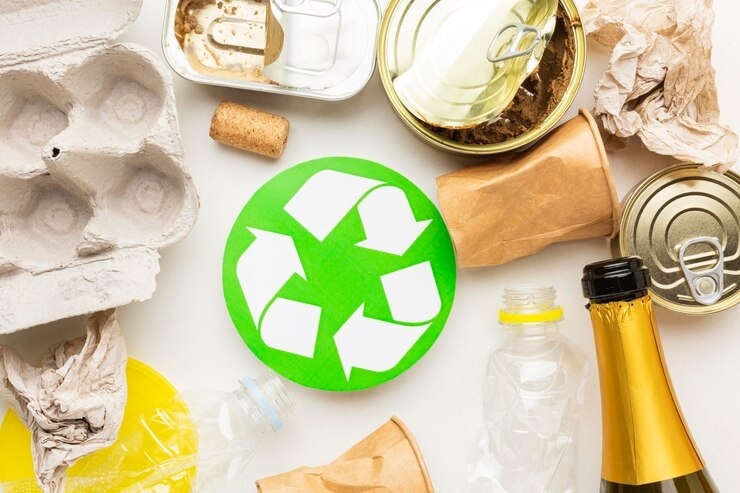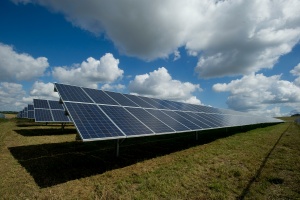BCG Energy enters 'waste-to-energy' sector
 |
The deal heralds Bamboo Capital Group's strategic entry into the waste-to-energy (WTE) arena, underscoring a broader ambition to diversify its renewable energy initiatives.
Following this merger, BCG Energy is poised to apply its robust renewable project development expertise to establish two WTE facilities in Ho Chi Minh City and Long An, currently operated by Tam Sinh Nghia.
These facilities, which include waste processing, sorting, and incineration operations, are set for an overhaul.
BCG Energy's deployment of cutting-edge technology for these plants aims to revolutionise urban waste management practices, offering a sustainable solution to the environmental challenges posed by traditional disposal methods.
The construction of the inaugural Tam Sinh Nghia WTE plant is slated for 2024-2025 in Ho Chi Minh City's Cu Chi district, at the Northwest Solid Waste Treatment Complex.
With an investment north of VND5 trillion (approximately $211 million), the facility will sprawl over 20 hectares, boasting a daily processing capability of 2,000 tonnes and an initial power generation capacity of 40 MW. Future expansions could see the plant's capacity surge to 5,200 tonnes per day, with power output potentially hitting 130 MW.
BCG Energy also plans to erect another WTE plant in Long An Province's Tan Dong commune, Thanh Hoa district.
This project is projected to command an investment of about VND1.6 trillion (roughly $67 million), with a daily waste processing target of 500 tonnes and an anticipated 10 MW of power generation.
Further afield in Kien Giang, Tam Sinh Nghia's operational footprint includes a waste treatment facility in Rach Gia City's My Lam commune, Hon Dat district.
With an investment footprint of VND200 billion ($8.4 million) and a processing capacity of 200 tonnes per day, BCG Energy is eyeing this venue for future investment and expansion, potentially transitioning it into a WTE plant.
Decision No.450/QD-TTg, from April 2022, endorsed the National Environmental Protection Strategy through 2030, with a vision towards 2050, underscoring the government's commitment to solid and hazardous waste management.
This strategy prioritises the reduction of urban waste landfill rates to 30 per cent by 2025 and 10 per cent by 2030, with an aim for modern waste treatment technologies, including WTE, to handle at least 80 per cent of Ho Chi Minh City's household waste by 2025, reaching 100 per cent by 2030.
However, as of now, only three WTE plants in Can Tho, Hanoi, and Bac Ninh are operational for power generation, with others in various stages of negotiation, construction, or approval.
As Ho Chi Minh City grapples with the daunting task of managing waste generated by its 13 million residents, amounting to 9,000 tonnes daily, Bamboo Capital Group's venture into the WTE sector is both timely and critical.
The forthcoming facility, capable of processing an impressive 2,000 tonnes of waste per day with room for expansion, signifies a significant leap towards mitigating the city's waste management challenges. Moreover, it underscores a commitment to bolstering Ho Chi Minh City's energy supply, a necessity following the increased demand spurred by the economic recovery.
 | BCG Energy ramps up capital investment for renewable energy ventures BCG Energy, a subsidiary of Vietnam's Bamboo Capital Group, has substantially increased its charter capital. The capital hike, from VND4.5 trillion (around $189 million) to VND7.3 trillion, marks a significant escalation in the firm's investment capacity. |
What the stars mean:
★ Poor ★ ★ Promising ★★★ Good ★★★★ Very good ★★★★★ Exceptional
Related Contents
Latest News
More News
- Trung Nam-Sideros River consortium wins bid for LNG venture (January 30, 2026 | 11:16)
- Vietnam moves towards market-based fuel management with E10 rollout (January 30, 2026 | 11:10)
- Envision Energy, REE Group partner on 128MW wind projects (January 30, 2026 | 10:58)
- Vingroup consults on carbon credits for electric vehicle charging network (January 28, 2026 | 11:04)
- Bac Ai Pumped Storage Hydropower Plant to enter peak construction phase (January 27, 2026 | 08:00)
- ASEAN could scale up sustainable aviation fuel by 2050 (January 24, 2026 | 10:19)
- 64,000 hectares of sea allocated for offshore wind surveys (January 22, 2026 | 20:23)
- EVN secures financing for Quang Trach II LNG power plant (January 17, 2026 | 15:55)
- PC1 teams up with DENZAI on regional wind projects (January 16, 2026 | 21:18)
- Innovation and ESG practices drive green transition in the digital era (January 16, 2026 | 16:51)

 Tag:
Tag:




















 Mobile Version
Mobile Version